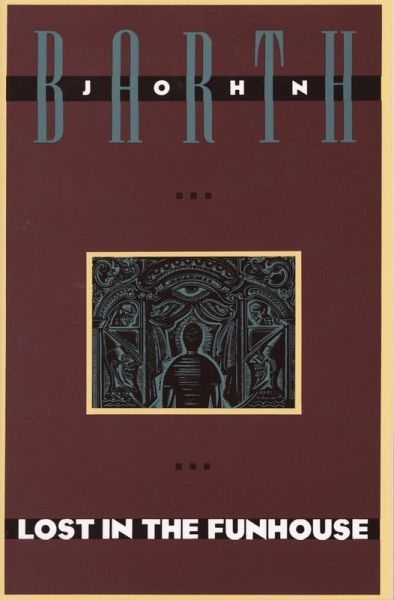
Lost in the Funhouse (eBook, ePUB)

PAYBACK Punkte
2 °P sammeln!
NATIONAL BOOK AWARD FINALIST • John Barth's lively, highly original collection of short pieces is a major landmark of experimental fiction exploring themes of purpose and the meaning of existence. "[Barth] ran riot over literary rules and conventions, even as he displayed, with meticulous discipline, mastery of and respect for them." -The New York Times From its opening story, "Frame-Tale"--printed sideways and designed to be cut out by the reader and twisted into a never-ending Mobius strip--to the much-anthologized "Life-Story," whose details are left to the reader to "fill in the blank...
NATIONAL BOOK AWARD FINALIST • John Barth's lively, highly original collection of short pieces is a major landmark of experimental fiction exploring themes of purpose and the meaning of existence. "[Barth] ran riot over literary rules and conventions, even as he displayed, with meticulous discipline, mastery of and respect for them." -The New York Times From its opening story, "Frame-Tale"--printed sideways and designed to be cut out by the reader and twisted into a never-ending Mobius strip--to the much-anthologized "Life-Story," whose details are left to the reader to "fill in the blank," Barth's acclaimed collection challenges our ideas of what fiction can do. Highlights include the Homerian story-wthin-a-story-within-a-story (times seven) of "Menalaiad,' and "Night-Sea Journey," a first-person account of a confused human sperm on its way to fertilize an egg. All of the characters in Lost in the Funhouse are searching, in one way or another, for their purpose and the meaning of their existence. Together, their stories form a kaleidescope of exuberant metafictional inventiveness.
Dieser Download kann aus rechtlichen Gründen nur mit Rechnungsadresse in A, B, BG, CZ, D, DK, EW, E, FIN, F, GR, HR, H, I, LT, L, LR, NL, PL, P, R, S, SLO, SK ausgeliefert werden.



